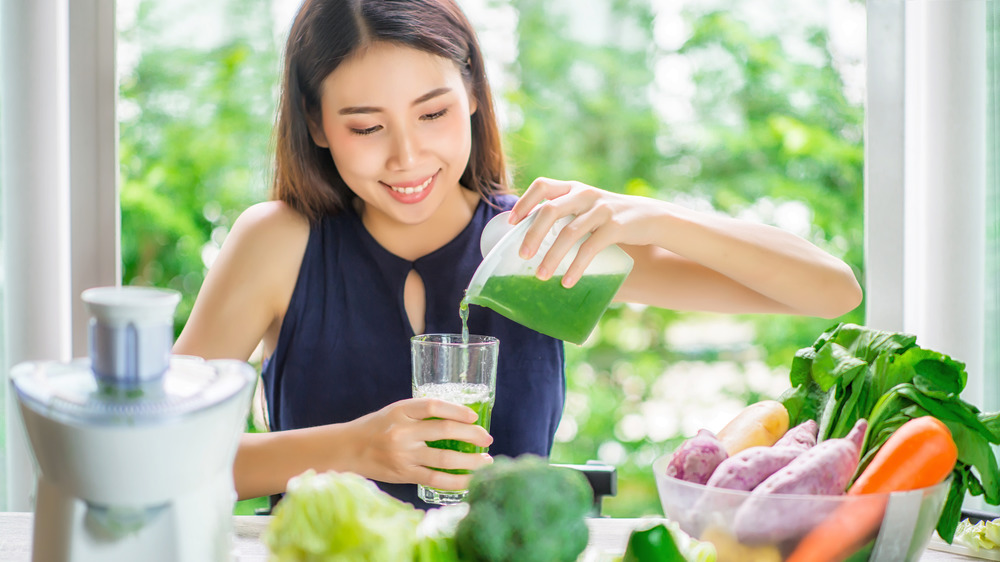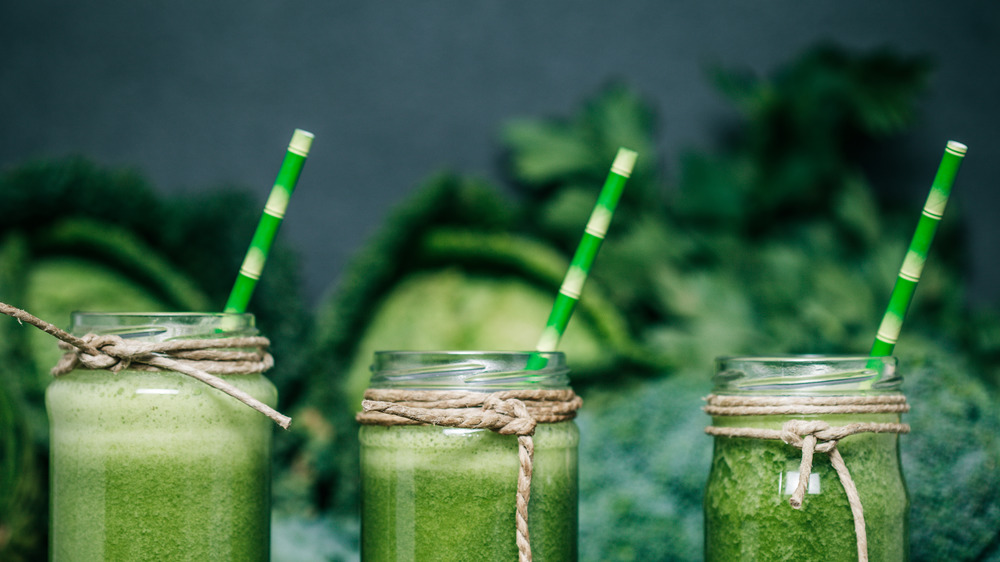Green Juice Isn't As Healthy As You Think. Here's Why
Unlike some health fads (remember the fat-free craze of the 80s?), the trend towards juicing — and especially green juicing — seems to be here to stay. Green juice has been marketed with glittering promises, like that it can "make your body sing" and put "pep in your step" (via Consumer Reports). But is it really as healthy as we're led to believe?
It's true that green juices often have an impressive list of healthy ingredients — especially if they are made at home. At its base, green juice is made from a combination of green vegetables like kale, spinach, or celery, with herbs and fruits possibly added. Because of that, they can be an excellent way to easily include a lot more vitamins, minerals, and antioxidants into our diets than we wouldn't otherwise consume. But there are drawbacks.
Commercial varieties of green juice often contain added sugars, which can contribute to the already excessive amounts of sugar that most of us consume. According to the American Heart Association, the average American consumes more than three times the amount of sugar recommended for women, per day. So getting added sugar in a drink that is marketed as "health food," seems counterintuitive. Some green juices contain a high fruit-to-vegetable ratio, which can also result in large amounts of fruit-based sugar. Read the labels to make sure that the amount of added sugars is zero or very close to it.
Green juice may contain added sugars
Also, experts point out that green juices should be considered a vegetable serving, not a meal replacement. Since the process of juicing removes most of the fiber, juice of any kind — green or otherwise — should not be a substitute for eating whole fruits and vegetables. "The reality is that nature is smart. Fruits that are higher in sugar come with a fibrous matrix to slow down the absorption of sugar. Without that fiber as a barrier, you're giving sugar easy access, and it quickly absorbs into your bloodstream," Kelly Johnston, a registered dietitian nutritionist and a health coach with Parsley Health in New York City, says (via Everyday Health).
The lack of fiber, along with being low in fat and protein (both of which help maintain balanced blood sugar), means that drinking too many juices can also raise blood sugar (via Healthline). This can be helped by pairing the juice with a snack that contains fiber and protein, like whole-grain crackers with peanut butter or deviled eggs.


